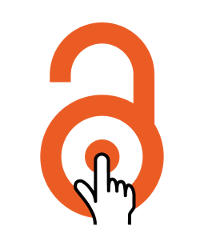Every day people around the world such as doctors, scientists, students and patients are denied access to the research they need. With the power of the internet, the results of academic research should be available to all. It’s time to showcase the impact of paywalls and help people get the research they need. That’s where Open Access Button comes in.The Open Access Button is a browser plugin that allows people to report when they hit a paywall and cannot access a research article. Head to openaccessbutton.org to sign up for your very own Button and start using it.
I just want to flag up this cool project that’s trying to improve access to scholarly literature for everyone. I’ve been involved with the project from the start, helping to figure out how to tie it in with open access repositories, but it’s medical students David Carroll and Joe McArthur who deserve the credit for coming up with the idea and driving it forward.
To date, more than 5,000 blocked articles have already been logged. It even got mentioned in the Guardian! Take a look, give it a try or even get involved:
How did I get involved?
Last year, I spent some free time creating an experimental web tool to look up Open Access1 versions of scholarly articles from their DOIs2. There is already a system for getting the official version of record for any DOI, but it struck me that where that version is hidden behind a paywall and a free version is available elsewhere, it should be just as easy to find that.
This work got noticed by a group of people at a hack day3, which resulted in my contributing to their project, the Open Access Button. The primary purpose of the OA Button is to allow people to report whenever they hit a paywall while trying to read an article (so that the scale of the problem can be visualised), and as an added bonus, we’re adding functionality to help gain access through other channels, including finding green open access versions and contacting the corresponding author.
-
“Open Access” refers to content which is freely available for all to read and use (usually referring to scholarly articles that publish the results of academic research), as distinct from that which is only accessible by paying a fee (either per-article or a as subscription to a journal). ↩
-
A Digital Object Identifier (DOI) is a unique string of characters that identifies a published object, such as an article, book or dataset. They look something like this:
10.1000/182. ↩ -
A hack day is an opportunity for developers and non-developers to get together and prototype projects without any risk of loss or ridicule if things don’t work out — great for getting the creative juices flowing! ↩
